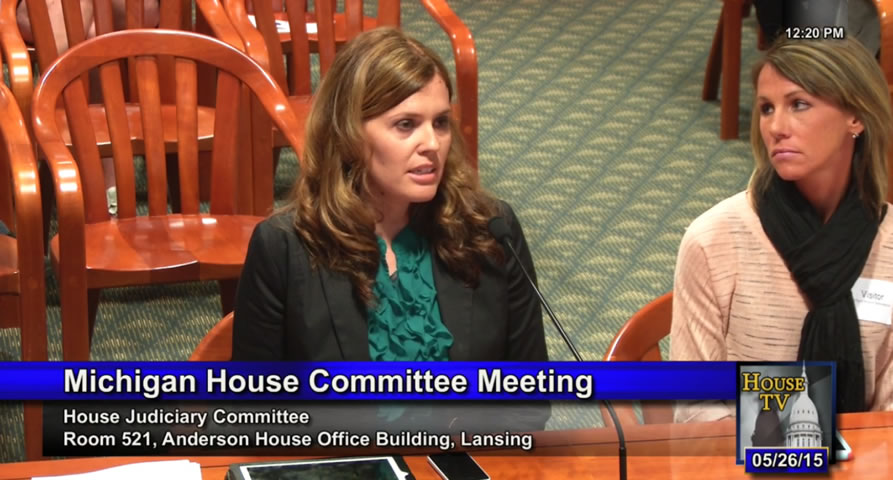WASHINGTON, D.C. ― Equipped with a quorum of Commissioners for the first time since 2018, the bipartisan United States Sentencing Commission voted today to promulgate amendments to the federal sentencing guidelines. “The Sentencing Commission is back in business,” said Chair Carlton W. Reeves. “Today, we are listening to Congress and the public by increasing first steps toward second chances, taking targeted action on gun trafficking and fentanyl, and expanding alternatives to incarceration. The policies issued today are common-sense ideas that will increase public safety while strengthening our communities.” Watch the public meeting.
During the pandemic, federal judges saved lives using their authority in 18 U.S.C. § 3582(c)(1)(A) to reduce sentences for incarcerated people facing “extraordinary and compelling” circumstances like certain risks posed by COVID-19. Responding to the First Step Act’s directive to increase the use and transparency of this tool, the Commission updated its guidelines to reflect lessons learned since the pandemic, ensure judges can continue to take first steps toward second chances for those who deserve them, and reunite families through appropriate reentry. “Judges are in the best position to decide if someone deserves to have the length of their sentence revisited,” said Chair Reeves. “This policy trusts courts to continue doing what is right.”
Since the Commission last had a quorum, communities across the country have struggled with the ills of gun trafficking and fentanyl. Congress directed the Commission to act on gun trafficking through the Bipartisan Safer Communities Act of 2022, while the Drug Enforcement Administration asked the Commission to evaluate possible action on fentanyl. In response, the Commission voted to take targeted action on both issues. “The problems of gun trafficking and drug overdoses demand a comprehensive response,” said Vice Chair Claire Murray. “I am proud to say the Commission is doing its part by ensuring we have proportional sentences for serious offenses.”
The Commission is also revising guidance to courts regarding people facing their first federal conviction. Relying on data and extensive analysis about recidivism, the Commission is acting to maximize public safety and encourage consideration of alternatives to incarceration. “Our new policies revise the sentencing guidelines based on empirical research and experience,” said Vice Chair Laura Mate. “This careful, evidence-based approach will increase fairness in sentencing and keep our communities safe.”
Among the many other policies issued by the Commission are those that seek to address ghost guns, sexual abuse of incarcerated people by correctional employees, clarify acceptance of responsibility points for defendants, and implement criminal justice legislation passed by Congress. “The policies issued today reflect the wide spectrum of views we received through public hearing testimony and tens of thousands of letters,” said Chair Reeves. “The policies issued today prove, beyond a doubt, that when you speak to the Commission, you will be heard.”
While the newly reconstituted Commission concludes its first policymaking cycle, there is more work to do. In the year to come, the Commissioners will continue to study a number of proposed policies, including those regarding how the guidelines treat acquitted conduct and the “categorical approach” to the career offender guideline. In the meantime, the Commission will send final amendments to Congress by May 1, 2023. If Congress does not act to disapprove the amendments, they will take effect on November 1, 2023. Visit the Commission’s website for more information about the amendment process and the changes approved today.
More Posts

Colorado Supreme Court: Employers can fire for off-duty pot use
The Colorado Supreme Court ruled Monday Jun 15, 2015, that Employers’ zero-tolerance drug policies trump Colorado’s medical marijuana laws. In a 6-0 decision, the Colorado Supreme Court affirmed lower court rulings that businesses can fire employees for the use...

How a sex toy put spotlight on Michigan civil asset forfeiture laws targeted for reform
The headlines read... "How a sex toy put national spotlight on Michigan civil asset forfeiture laws targeted for reform" "State Legislators Reconsider Forfeiture Laws That Turn Cops Into Robbers" "Why Take My Vibrator?" Cops Legally Rob "every Belonging"...

Reform Today’s Forfeiture Laws
Everyday, I get calls to my office from medical marijuana patients and caregivers who have been raided or pulled over by police. Often times, these individuals are not arrested, and little if any paperwork is left behind by the various Narcotics Enforcement Teams....

KOMORN LAW NEWSLETTER ISSUE #1 May 2015
The Michigan Legal Advisor News Letters. Read the current newsletter from Michigan's #1 Medical Marijuana Defense Attorney Michael Komorn. KOMORN LAW NEWSLETTER ISSUE #1 May 2015 Michael Komorn is recognized as a leading expert on the Michigan Medical...

Attorney Michael Komorn Lectures Students at the U of M Law School
I wanted to give a huge thanks to University of Michigan Law School Professors Howard Bromberg, Mark Osbeck and Law School class. This past Thursday I had the honor of being asked to speak about my favorite topics, the Michigan Medical Marihuana Act and the practice...

Jury Selection In Marihuana Cases
A jury trial is fundamental to our democratic system of government. Every American citizen should embrace this responsibility by participating, and ensure justice prevails. by Michael Komorn I just picked a jury in a marihuana case, there were several perspective...

Planet Green Trees Radio Episode 149-MSC People v. Koon
The best resource for everything related to Michigan medical marijuana with your host Attorney Michael Komorn. Live every Thursday evening from 8 -10 pm eastern time. By Michael Komorn The Michigan Supreme Court issued a unanimous opinion making a finding that...

Polygraphs Proven Unreliable, Used for Police Intimidation
Polygraphs are widely recognized as unreliable yet police still use them to elicit confessions. By Michael Komorn Many states don’t allow polygraph test to be admitted in court because they are unreliable. Their lack of reliability is widely recognized by criminal...

Arrests for DUI’s on the Rise
By Michael Komorn Arrests for DUI’s have been on the rise across Michigan. This trend could drastically increase as The National Transportation Safety Board (NTSB) has called on state authorities to reduce the legal limit to 0.05 percent. Currently, all 50 U.S. states...

US District Court Judge rules police cannot enter a car without a warrant to facilitate a drug dog sniff
Federal Judge Applies GPS Ruling To Drug Dog Traffic Stop By Michael Komorn Last week, a judge with the US District Court for the Southern District of West Virginia applied the precedent to the common police practice of “permeation” where a police officer enters a...








